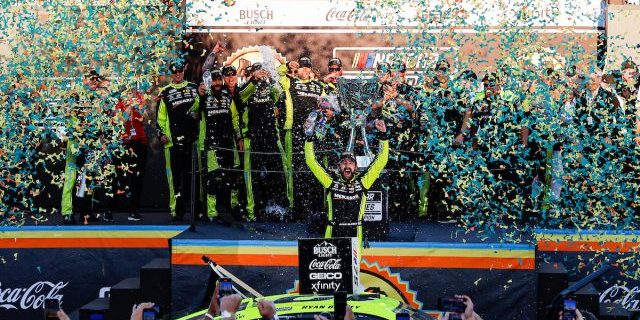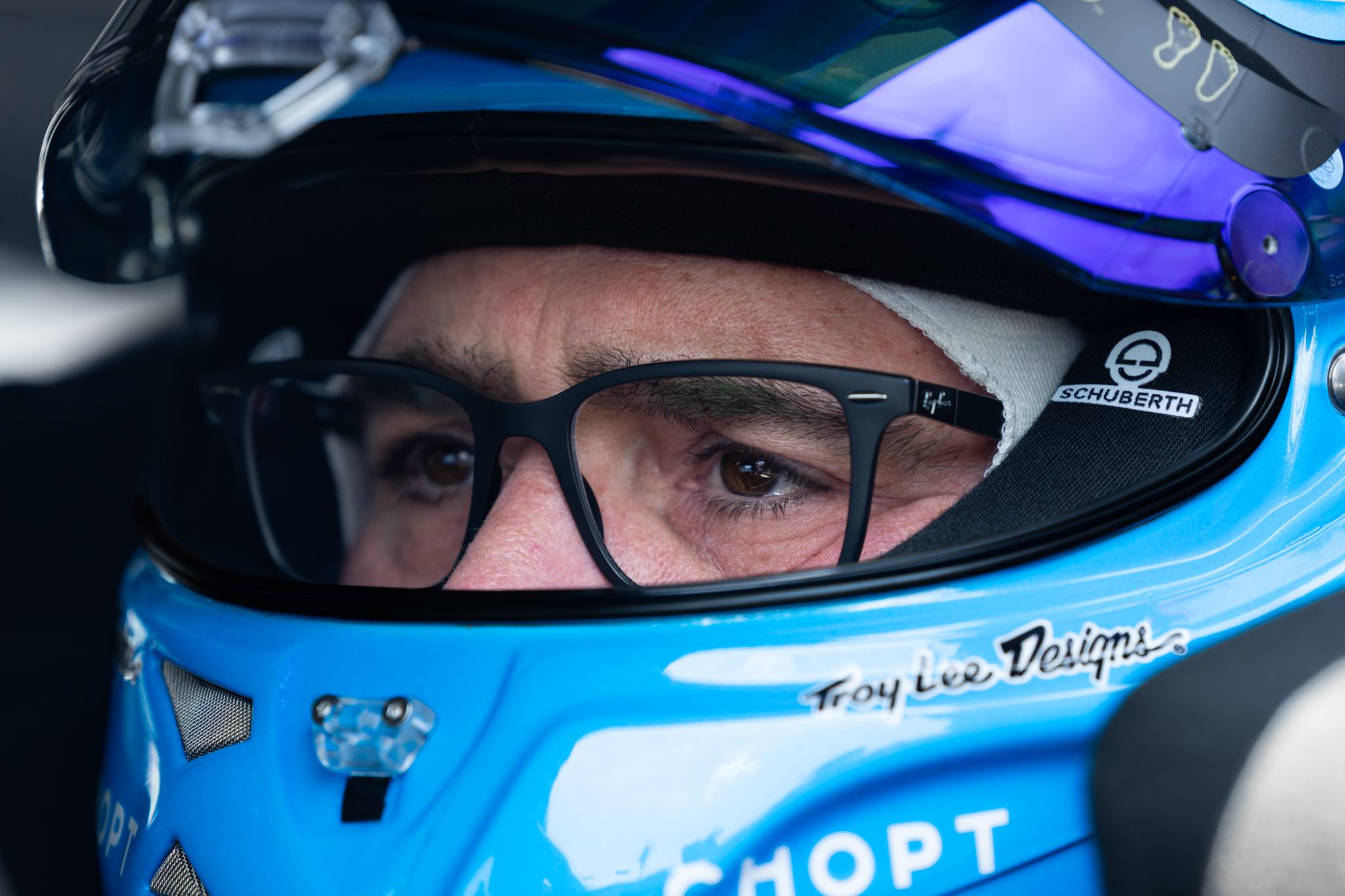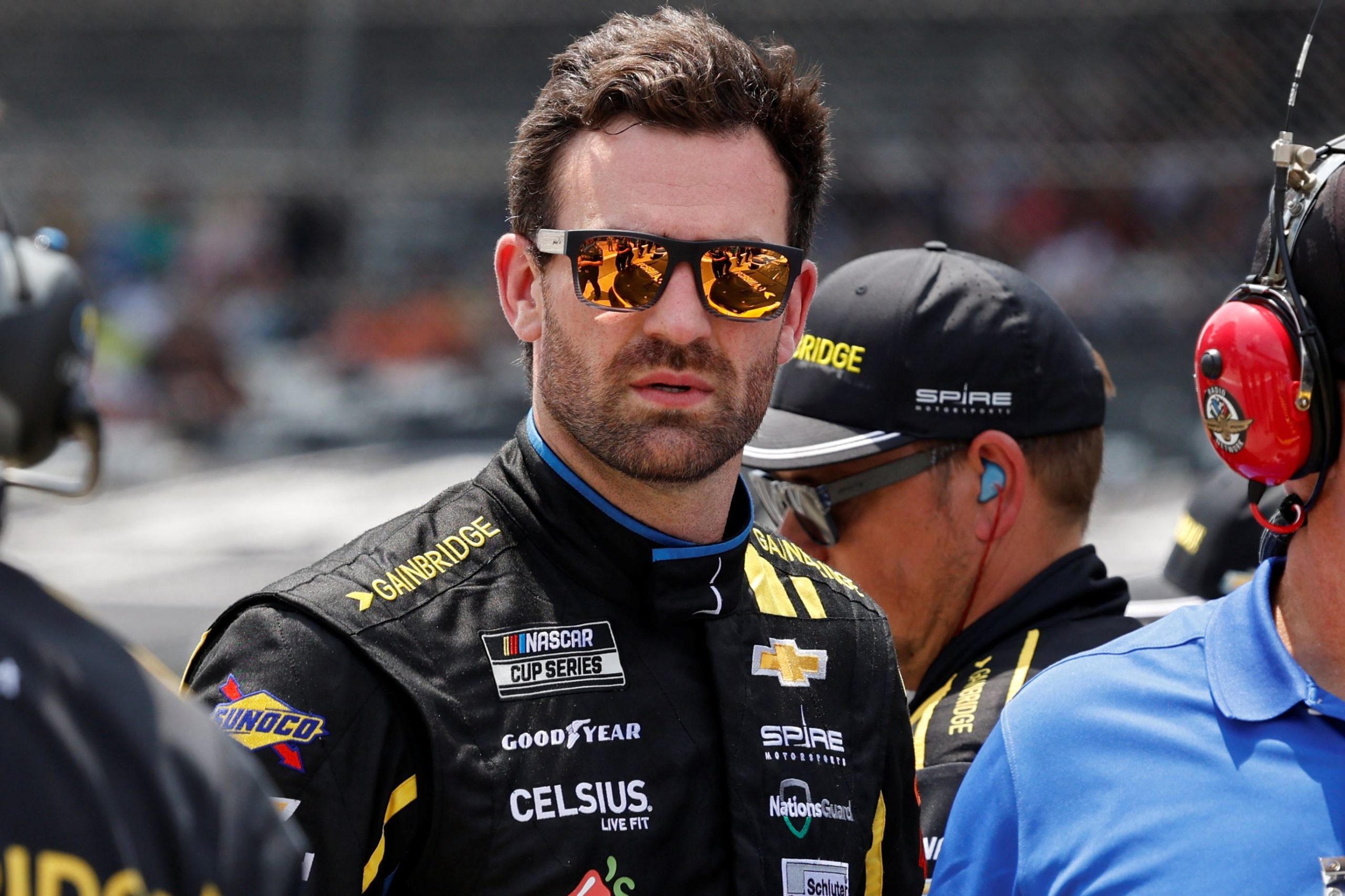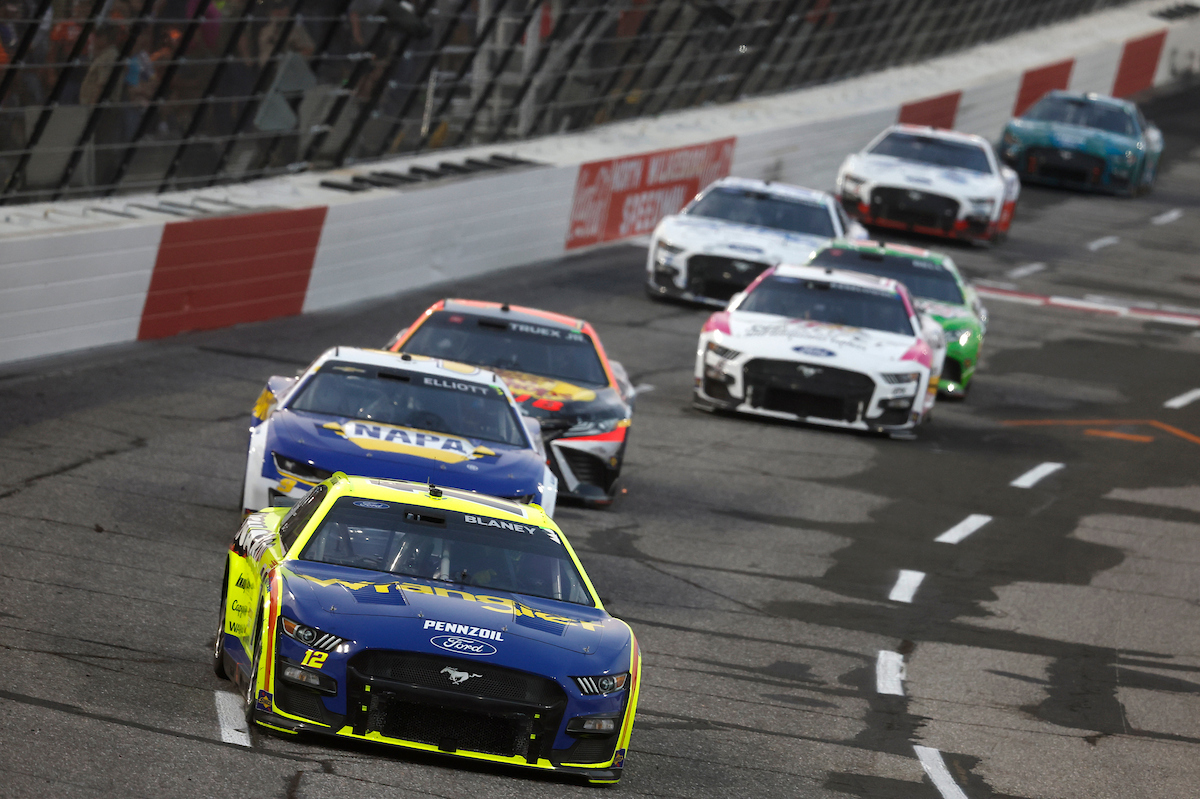When Was The Very First NASCAR Race?


The National Association for Stock Car Auto Racing, known as NASCAR, is an integral part of American motorsport culture with deep historical roots. Its origins trace back to the prohibition era, but the official chronicle of NASCAR began after World War II. It was during a time of rapid technological progress and growing public interest in automobile racing that NASCAR found its footing. In 1947, NASCAR became a formalized entity under the guidance of Bill France Sr., who saw the potential in organizing and promoting stock car racing.
The starting point of NASCAR’s storied history is marked by the first ‘Strictly Stock’ race, which took place on June 19, 1949, at the Charlotte Fairgrounds Speedway in North Carolina. This race is considered the birth of the current NASCAR Cup Series. The event showcased actual production cars, a stark contrast to the modified vehicles that had defined the sport up to that point. Jim Roper was declared the winner after a grueling competition, setting the precedent for what would evolve into a robust racing series revered by millions.
Evolution has been a constant companion of NASCAR as it adapted and grew, shaping the landscape of American stock car racing. What started as a collection of races for unmodified sedans has evolved into a formidable racing series, distinguished by high-speed, highly competitive, and technologically sophisticated vehicles. Its cultural impact is significant, with a legacy that has spawned a vast and dedicated fan base, influenced myriad elements of American culture and raised frequent questions about the past, present, and future of the sport.
Key Takeaways
- NASCAR’s first official race launched the series in 1949 at Charlotte Fairgrounds Speedway.
- The inaugural race marked the evolution from modified to stock car racing.
- The series has had a profound cultural impact and has shaped the legacy of motorsport in the U.S.
Table of Contents
Historical Roots of NASCAR
NASCAR’s emergence as a premier motorsports organization is deeply intertwined with the colorful history of moonshine running during the Prohibition Era and the vision of its founder, Bill France Sr.
Birth of NASCAR and its Founder
The National Association for Stock Car Auto Racing (NASCAR) was officially established on February 21, 1948. It was the brainchild of Bill France Sr., a mechanic and race promoter. He recognized the need for a sanctioning body to govern and organize racing events in the United States. The first official NASCAR race took place on February 15, 1948, shortly before the formal establishment of the organization.
Influence of Moonshine and Prohibition Era
During the Prohibition Era, illicit moonshine runners—smugglers of homemade alcohol—modified their vehicles to outpace law enforcement. This not only led to significant advancements in car performance but also fostered a culture of competitive racing in the rural South. These runners laid the foundation for what would become a hallmark of American motorsports culture. The end of Prohibition in 1933 did not diminish the local community’s racing fervor that ultimately escalated into the formal racing events and founding of NASCAR.
The Inaugural NASCAR Race
The very first NASCAR race, recognized as the start of the Strictly Stock series, was a pivotal event that took place on June 19, 1949, and marked the beginning of what would become a major motorsport series.
Charlotte Speedway: The Venue
Charlotte Speedway, a 3/4-mile dirt track located in Charlotte, North Carolina, had the honor of hosting this seminal event in motorsports history. Over 13,000 spectators gathered to witness the birth of the NASCAR Cup Series. The track’s conditions added to the challenge, offering a gritty environment for what was to become a cornerstone of stock car racing.
The Contenders and Notable Drivers
Among the Notable Drivers, Jim Roper emerged victorious driving a Lincoln, although initially, Glenn Dunaway was the first to cross the finish line in a Ford. A post-race inspection disqualified Dunaway due to illegal alterations on his car, leading to Roper’s historic win. Lee Petty, one of the sport’s legends, also competed in this race, driving an Oldsmobile. This race established the foundation for the careers of many drivers and set the standards for the competitiveness of the series, then known as Strictly Stock.
Evolution of Stock Car Racing
The genesis of stock car racing laid the foundation for today’s high-octane NASCAR Cup Series, evolving from informal competitions to a well-structured sporting spectacle that includes the iconic Daytona 500.
Strictly Stock to Cup Series
The progression from Strictly Stock division to the NASCAR Cup Series marks a significant transformation in the sport’s history. On June 19, 1949, NASCAR hosted its first Strictly Stock race at the Charlotte Fairgrounds Speedway. This pivotal event was a precursor to the comprehensive racing series known today. Through the decades, NASCAR rebranded the premiere series several times, reflecting changes in race car specifications and sponsorship agreements. Today, the NASCAR Cup Series represents the zenith of stock car racing, featuring highly modified sedans built for speed and safety, a far cry from the strictly stock automobiles of the initial races.
Significant Events and Expansion
NASCAR’s growth can be delineated by key events and strategic expansions that have cemented its status in motorsports. The introduction of the Daytona 500 in 1959 at the Daytona International Speedway was a game-changer. Often referred to as “The Great American Race”, it became a cornerstone event that contributed to NASCAR’s surging popularity.
| Year | Milestone |
|---|---|
| 1949 | First Strictly Stock race at Charlotte Speedway |
| 1959 | Inaugural Daytona 500 race |
| 2010 | NASCAR Hall of Fame opened |
Expansion-wise, NASCAR’s influence has spread beyond the racetracks to cultural landmarks like the NASCAR Hall of Fame, opened in 2010 in Charlotte, North Carolina. It honors the drivers, crew chiefs, owners, and other notable contributors to the sport, enshrining the history and heritage of NASCAR racing. NASCAR’s televised presence has also played a pivotal role, broadcasting races to millions worldwide, and positioning stock car racing as a central spectacle in American sports entertainment.
Cultural Impact and Legacy
The inaugural NASCAR race not only birthed a new form of motorsports but also left a profound cultural legacy. It catalyzed the emergence of iconic drivers whose influence extended far beyond the racetrack.
Racing Icons and Their Influence
Richard Petty, often referred to as “The King,” has been a defining figure in NASCAR with a record seven series championships. Petty’s status is so legendary that his charisma and racing style have become benchmarks for aspiring racers.
Dale Earnhardt, known for his aggressive driving and seven championships, remains a symbol of tenacity in motorsports. His persona and impact continue to be a guiding force for drivers around the globe.
Jimmie Johnson, another titan of the track, boasts seven championships, tying with icons like Petty and Earnhardt. Johnson’s consistent excellence has carved out a significant chapter in NASCAR’s history.
Jeff Gordon attracted a new audience to NASCAR in the 1990s, revolutionizing the sport with his charisma and four championships, thereby expanding NASCAR’s reach.
Danica Patrick broke barriers as one of the few women in the sport, and through her participation, she challenged norms and inspired a generation of women in motorsports.
Wendell Scott stands as a pioneering figure who became the first African American driver to win a race in the Grand National Series, overcoming significant racial barriers and leaving a legacy of perseverance and determination.
NASCAR’s Role in Motorsports Today
NASCAR has maintained its status as a cornerstone of professional stock car racing and remains integral to the fabric of motorsports. The significance of the drivers’ championship endures as a coveted achievement, emblematic of the pinnacle of success in the industry.
Continuously evolving, NASCAR now embraces 21st-century technological innovations and environmental considerations, proving its adaptability and sustained relevance in the motorsports arena.
When Was the Very First NASCAR Race? – Frequently Asked Questions
This section addresses common inquiries regarding the origins and historical milestones of NASCAR, specifically focusing on its inception and subsequent development.
What is the historical significance of the 1948 NASCAR season?
The 1948 NASCAR season holds historical importance as it marks the founding of NASCAR, a major milestone in American motorsports that catalyzed the formal organization of stock car racing.
Who emerged victorious in the inaugural NASCAR series race?
In the initial NASCAR Strictly Stock race, now known as the NASCAR Cup Series, Jim Roper was declared the winner after the first-place finisher was disqualified due to a car modification.
Which NASCAR event was first broadcast on television, and when?
The first NASCAR event to be broadcast on television was the 1979 Daytona 500, a pivotal moment that significantly increased the sport’s visibility and popularity nationwide.
How has NASCAR evolved since its early races in the late 1940s?
Since the late 1940s, NASCAR has evolved from predominantly southeastern U.S. races to a nationwide series with major sponsorships, technological advancements, and a global fanbase.
Can you list some of the earliest tracks used in NASCAR’s 1948 season?
Among the earliest tracks used in NASCAR’s inaugural season were the Daytona Beach Road Course and the Charlotte Speedway, which were pivotal locations in the sport’s early history.
Who are some prominent figures from NASCAR’s first races and what is their legacy?
Prominent figures from NASCAR’s first races include founder Bill France Sr. and drivers like Red Byron and Lee Petty, whose legacies live on as pioneers and champions of stock car racing.










